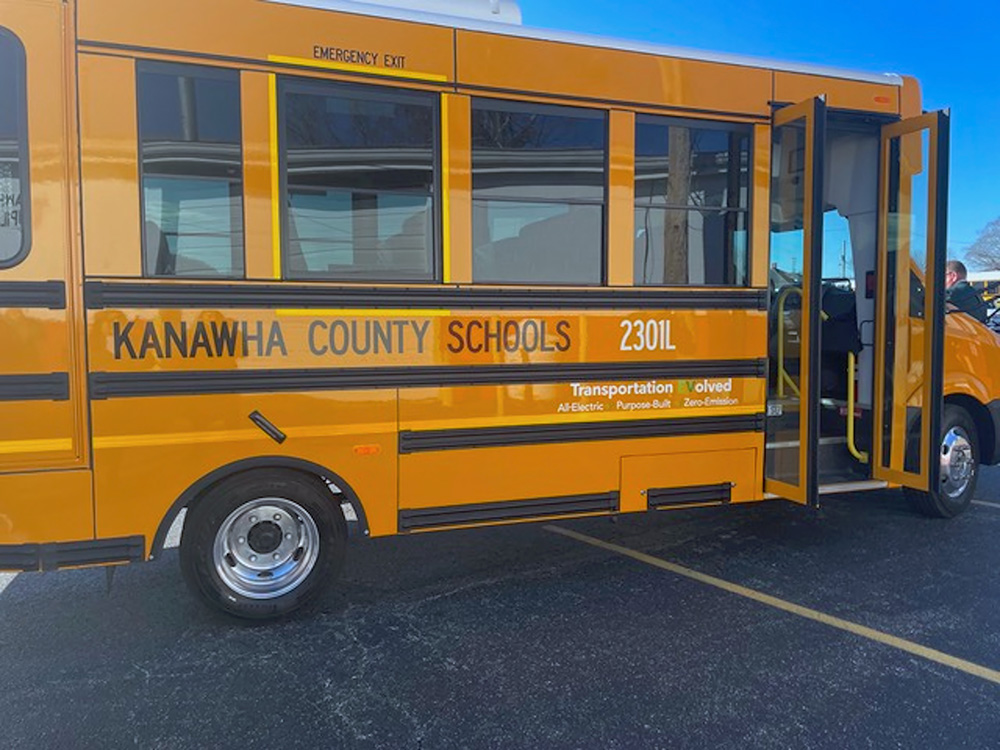WV Companies Deploying Federal Manufacturing and Clean Energy Incentives

A new electric school bus manufactured in South Charleston, W.Va., to serve West Virginia students. Photo courtesy of Kanawha County Schools
By Taylor Pate
The wheels of progress turned as four West Virginia school districts welcomed new all-electric school buses in December 2023. Cabell, Clay, Kanawha and Monongalia counties are spearheading the shift towards cleaner, more sustainable transportation. Manufactured at the Green-Power Motors facility in South Charleston, West Virginia, these buses were a significant leap in reducing emissions and fostering a greener environment.
“This is the wave of the future,” says Kanawha County Schools Superintendent Tom Williams. “We need to get on the bus, literally, and move along.”
Kanawha County Schools takes pride in leading the charge, according to Williams.
“There are former Kanawha County students that were part of the GreenPower team that built our bus,” Williams says. “And with GreenPower’s tremendous growth, we look forward to more of our graduates working there.”
School districts and other tax-exempt entities that purchase electric school buses built by GreenPower are eligible for Commercial Clean Vehicle Credit tax credits of up to $40,000 through the 2022 Inflation Reduction Act. In addition, the U.S. Environmental Protection Agency announced that West Virginia counties would receive $18 million under the 2021 Bipartisan Infrastructure Law’s Clean School Bus Program to help purchase electric buses from Green Power.
Meanwhile in Huntington, West Virginia, the former ACF Industry’s machine shop, dormant for a decade, is undergoing a significant transformation. It is set to house the Marshall Advanced Manufacturing Center, a facility that offers equipment, training, and guidance to empower manufacturers and generate employment opportunities.
“We will be able to train more students to meet industry demand, but also so young people can find good paying jobs right here at home,” says Mike Friel, the director of communications at the Marshall Advanced Manufacturing Center.
The facility received a boost of $550,221 from the Rural Development branch of the U.S. Department of Agriculture to support its expansion. They received additional funding through the U.S. Economic Development Administration’s Build Back Better Program.
Through these funding opportunities, the Marshall Advanced Manufacturing Center aims to double the capacity of its welding program and introduce new programs focusing on robotics and aerospace welding.
Under the Inflation Reduction Act, new and improved tax credits and incentives are available to manufacturers with the aim of enhancing domestic manufacturing capabilities and producing clean energy.
Related Articles
Latest News

Leave a comment
Your email address will not be published. Required fields are marked *





Leave a Comment